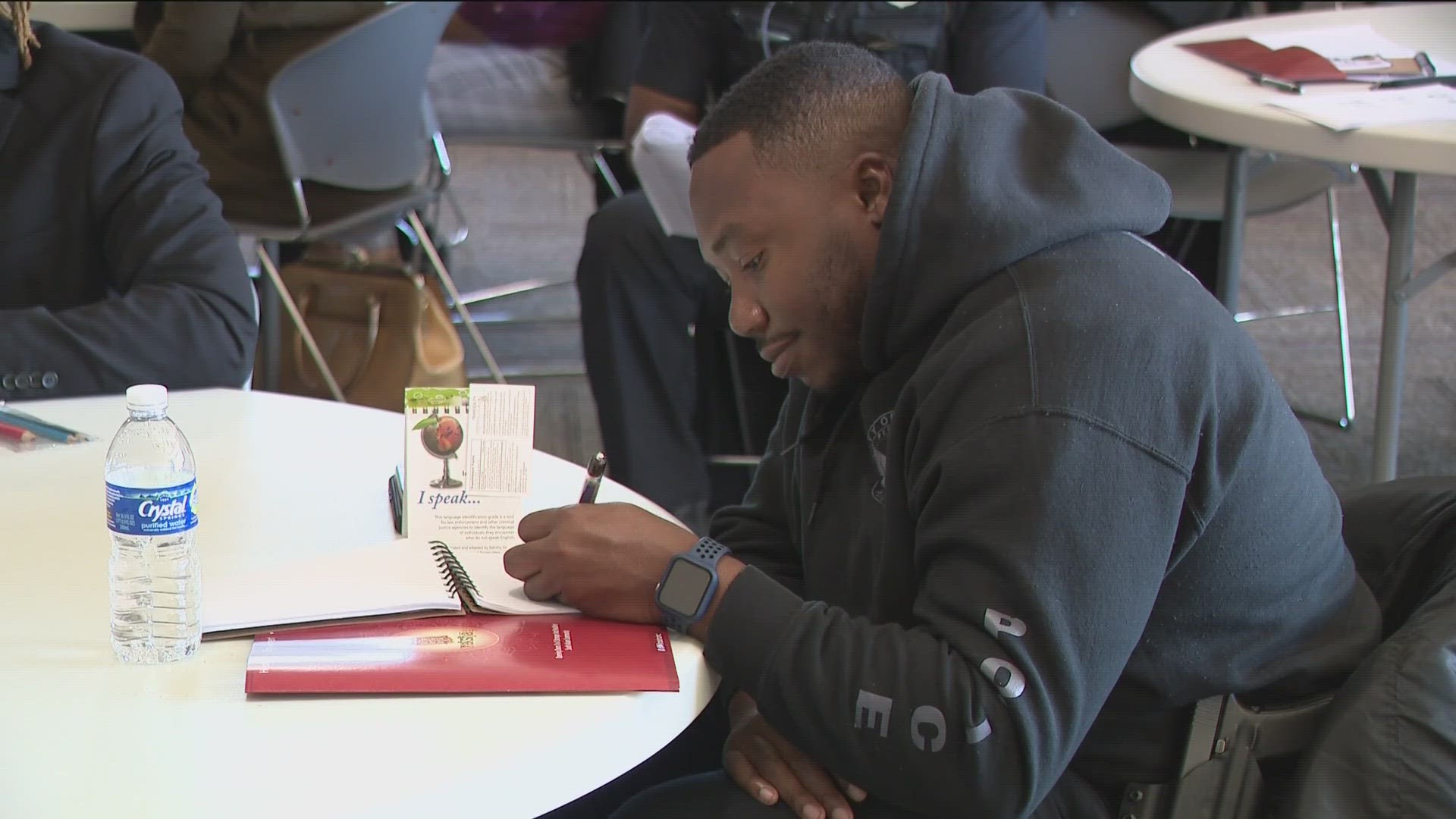ATLANTA — The Atlanta Police Department is working to make sure they can serve people from all cultures, regardless of the language they speak.
On Thursday, sworn and non-sworn employees from APD headed to training to get a better idea of what resources are available when responding to non-English speaking communities. It's aimed at giving employees of law enforcement agencies the tools to provide effective response techniques to limited English-proficient victims of domestic and sexual violence.
“People can tell, whether you’re speaking their language or not, they can tell when you really want to help and when you don’t,” said Valerie Mills, the senior manager at the mayor’s office of international and immigrant affairs.
Mills said communication is key in everything they do, noting Atlanta stands by a motto: you don’t have to speak excellent language to receive excellent service.
Senior Police Officer Miguel Lugo, with APD, said he hopes officers inside the training learn how many resources are available to help them.
“One of the problems that we have is sometimes victims don’t come forward because the department doesn’t have a way to communicate properly with them,” said Lugo.
Lugo said the department has close to 100 officers certified as translators.
“Because there is a break in the language barrier, it’s not an excuse, and it’s not going to stop us from doing our job and assisting the victims of crime in Atlanta,” Lugo said.
He said the ability to communicate clearly and show understanding makes a huge difference in their interactions with people.
“When they see that the person responding to the call actually speaks their language, you can see a small sigh of relief on their face,” Lugo added.
Raksha, Inc., is an organization that works with South Asian survivors of violence throughout the state. Executive Director Aparna Bhattacharyya said feeling understood, for survivors, is a step in the healing process.
“Because a lot of times, survivors are told no one is going to listen to them, no one cares about them,” Bhattacharyya said. “When you can at least tell your story and feel like the system is going to listen to you, then you might be able to engage in accessing resources.”
Bhattacharyya said while this is a great first step, she hopes to see more people involved with the law, like judges and prosecutors, also take similar training.

